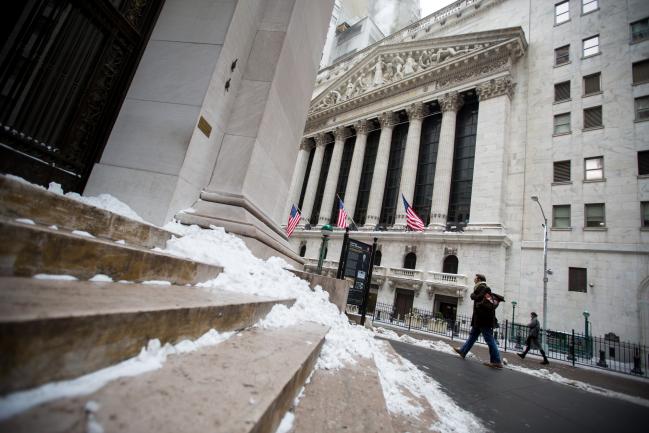(Bloomberg) -- U.S. stock-index futures slumped, erasing an advance in early trading, as investors assessed the prospect for earnings next year following the Federal Reserve’s dialed-back expectations for tighter policy.
March e-mini contracts on the S&P 500 Index slid as much as 1.1 percent, reversing a 0.5 percent gain. Futures on the Nasdaq 100 Index and Dow Jones Industrial Average dropped more than 1 percent.
Key Insights
- The S&P 500 fell 1.5 percent on Wednesday, breaking its February intraday low as markets revolted from what they saw as a less-dovish-than-hoped Fed rate increase. The central bank trimmed its outlook for hikes and cited softening global economic conditions.
- The drop pushed the benchmark gauge’s 14-day relative strength index into oversold territory. It’s a technical signal that may indicate it will soon be time to buy U.S. stocks.
- The Fed’s warning on softening global economic conditions echoed that of FedEx Corp (NYSE:FDX)., which on Tuesday cut its profit forecast amid a slowdown in global trade in recent months, with leading indicators pointing to an ongoing deceleration in the near term. The weaker outlook stoked concerns that the world economy is slowing amid rising trade tensions, especially between the U.S. and China.
Get More
- Market Focus on Fed in 2019 May Be All About the Balance Sheet
- Powell Enters Era of Rate-Hike Caution as Growth Headwinds Mount
- In Friendless Stock Market, Powell Proves No Benefactor of Bulls
- Goldman Says China-U.S. Deal Would Be 2019’s Top Economic Event
- Policy Day: Asia Stocks Finding Direction Head for 20-Month Low
- Japan Stocks Poised for Bear Market as Fed, BOJ Spark Concerns
Market Reaction
- S&P 500 e-mini futures expiring in March fell 0.9 percent as of 1:02 p.m. in Hong Kong; the underlying gauge is on track to post its largest annual fall since 2008.
- The MSCI Asia Pacific Index slumped 1.9 percent, set for its lowest level since March 2017.
- Japan’s Nikkei 225 Stock Average extended its decline to 3.3 percent, while the Topix index dropped 2.8 percent, set to enter a bear market.
